Whatever Happened to Friendster?
Plus! Rubber Band Ball Update #4! Summer Vacation Photos!!!
Hello Everybody,
Welcome to Issue #40 of CAFÉ ANNE!
I missed writing the newsletter these past two weeks, and hearing from you. I did, however, enjoy a delightful state park cabin vacation on Lake Ontario with my extended family, and had a few opportunities to venture into the nearby small towns, where I took some photos.
Sorting through my snapshots, a clear theme emerged: Upstate New York is a seething cauldron of anarchy just barely contained by the iron fist of rule-crazed tyranny.
Behold the service counter sign at Garafolo’s, a sandwich store in downtown Oswego, NY:
Just down the main drag, by the way, the Guns n’ Roses cover of “Knocking on Heaven’s Door” was blaring from City Hall.
I also spotted this patrol vehicle outside the local police station:
Two can play at that game! I like to imagine that Oswego’s Local Drug Dealers are driving around in cop cars.
And finally, we have this sign hung in a Pulaski, NY laundromat:
Here’s hoping the Oswego cops are on the case.
In other news, I am excited for this week’s issue which includes the latest update on my doorman’s rubber band ball plus a Q&A with Ryan Broderick, one of my favorite Substack writers, on a topic I’ve been wondering about for years: whatever happened to Friendster?
Please enjoy!
Anne
PS: Next week’s newsletter will land on Tuesday rather than Monday, because Labor Day!
MY WILD BROOKLYN LIFE
Rubber Band Ball Update #4
Readers who don’t have Alzheimer’s will recall I’ve been chronicling the progress of my doorman’s rubber band ball since this newsletter launched last October. John Santiago, who is also a drone pilot extraordinaire, started the project last fall, using the rubber bands our mailman donates every day after unbundling the mail. He vowed he’d soon have a rubber band ball as big as a soccer ball.
When I checked in this past January for update #2, I was shocked to discover that Mr. Santiago had started another rubber band ball to keep the first one company. “I wanted to have a twin brother to it,” he told me.
Update #3, in April was a bit of a letdown. Mr. Santiago confessed he hadn’t done much rubber banding, and his balls had hardly grown at all.
When I checked in a few weeks ago, Mr. Santiago had bad news. He was going on leave for three months to get knee replacement surgery. My immediate concern: What does this mean for the rubber band balls?!?!?!?
Mr. Santiago retrieved the pair from his podium drawer. They were roughly the same size as they were in April. “I think I put on maybe four rubber bands since the last time we spoke about it,” he said. “I’ve been just, preparing myself for the surgery, setting up appointment after appointment. My mind hasn’t been on these guys here.”
“Sure,” I said.
I couldn’t believe what came next.
“You can take my rubber band balls and keep them in a safe place for me,” he suggested. “That way nobody steals them from me.”
“Yay!” I said.
I asked if he had any instructions.
“I’ll be honest, you can bounce them. You can do whatever you want with them. As long as when I come back, they’re here,” he said.
“I’m very honored,” I told him. “I’m going to put them on my coffee table so everybody can see.”
“Cool,” he said.
I asked Mr. Santiago to keep me posted on his condition. He sent me an email a few days after his operation with good news—the surgery was a success!
“I’m in pain yes but I’m pushing through it all and doing what needs to be done, bending my knee, putting weight on it, my daily exercises, I’m doing it all.”
Mr. Santiago also said that he missed the building’s residents and dogs. He didn’t ask about the rubber band balls, but I provided a little update in my reply:
“I want you to know that your rubber band balls are safe and happy. I put them on my shrine as (temporary) offering to Buddha and his fellow holy beings! I think this will help your knee. Please see photo attached:"
Too weird? He did not reply.
Barring some terrible misfortune, I’ll have the rubber band balls until Mr. Santiago returns in November. If you have any suggestions for their tending and care, please drop me a note: annekadet@yahoo.com
FEATURE
Whatever Happened to Friendster?
Before there was Facebook, and even before the sleazeball mess that was MySpace, there was Friendster, first social network to hit the mainstream.
I remember joining in 2004. It came at a weird time, at least for me. I was newly divorced, newly sober and playing tiny Lower East Side clubs in a bonkers power pop band. Every girl in NYC but me was dating Moby and hanging out at Teany, his vegan tea parlor on Rivington Street. iPhones were three years away—everyone had a RAZR flip phone and was just learning to text. Apps were not yet a thing, but even though you could only access the site from your desktop or laptop, everyone in town was on Friendster.
By 2006, of course, everyone was on Facebook. If you go to Friendster.com now, all you get is an error message. I’ve been wondering what happened to Friendster. Was it as wonderful as I remember?
Ryan Broderick, a fellow Brooklynite and one of my favorite fellow Substack writers (he covers internet culture in his Garbage Day newsletter with the exact mixture of humor, scorn and wide-eyed wonder it deserves), recently launched a mini-series on his podcast, The Content Mines, which he dubbed “Dead Platform Summer.” Every week, it covered a different internet platform that no longer exists. I kept waiting for the Friendster episode, and when I realized it wasn’t going to happen, I asked Mr. Broderick to join me for a Friendster Q&A on CAFÉ ANNE.
Please enjoy the exchange from our Zoom call last week. It has been edited and condensed to make us both sound amazing.
I wanted to talk about dead platforms first, and then Friendster in particular. What inspired you create “Dead Platform Summer”? Why are dead platforms inherently interesting?
I think most of the internet culture that we think about is created when a platform dies. That kind of magic, weird couple of years as a platform is fading away seems to be a really interesting moment for activity.
When all the users leave, they take with them all of these things that they're doing on one app and try to do them on the other app, and havoc breaks loose. It’s really interesting!
I've had this pet theory for the last year: If you look around the internet, it just feels very creaky. It feels very old. Facebook is effectively over. It's like its parent company doesn't care about it anymore. And Instagram, as we have known it, is over, and is now changing into TikTok.
So the idea that the last 15 years of social media is kind of ending right now made me think about other moments where this has happened. I was curious if those stories could teach us anything about what’s happening right now.
Why do things get weird when people are migrating from one platform to another? What kind of weird are you talking about?
When the platform is closing down, there's less moderation. Things are messy. In the same way that the last week of school before summer vacation, no one gives a shit. People are just acting like psychopaths.
And when they migrate, it's similar to what you would see in a city when a big baseball game lets out, or a concert lets out. All of the sudden everyone leaves their space and starts to interact with the greater population. There's this giddiness. And I think you can see that on the internet in a more serious way.
I had a friend who used to say, “People are always at their most interesting just after they get divorced.”
Exactly.
While researching Friendster, I got to thinking that these dead platforms are like a town you used to live in. You try to go back and there’s just a hole in the ground. And you’re like, “What was that?” There’s no way to know because it’s just vaporized into the digital ether.
You're right. A friend of mine once tried to go back and find her old Photobucket stuff because she was very interested in Photobucket archaeology. And so much of that stuff is gone and just totally destroyed.
That brings me to my first question about Friendster. It probably peaked in 2004. I'm curious where you were online then, and where you were in real life.
I was in middle school. I was not the age demographic for Friendster. I have older friends who were on it. But I just missed it. My first network was MySpace.
I don't know a ton about Friendster. Other than its limitations. From what I understand, it was similar to MySpace, except it didn't have very good networking effects. So it would be very easy to ‘friend’ everyone in your town. But then your town would just exist as an island on Friendster. I think that seemed to be the big issue. You didn’t get those early MySpace celebrities like Jeffree Star because there were no national friends on Friendster.
I think that’s what I loved about it. All my New York City friends were on it, but my mother wasn’t on it. My boss wasn’t on it. And I didn’t hear from anyone I didn’t know, or who wasn’t at least a friend of a friend, because there was no algorithm. All you could do was look at your friend’s profiles and see who they were linked to.
And I guess that was kind of the end of it, which is really funny. Because now, 20 years later, that's kind of what people like. BeReal is essentially Friendster, which is really weird to think about.
I took a look at the history of Friendster. Can I run it by you, and you can tell me how typical it was?
Yeah!
So this software engineer from Canada moved down to Silicon Valley. He got a job at Netscape and then some other jobs. Around 2002, his girlfriend broke up with him. He went on Match.com and didn’t like it. So he's just like, “How can I just check out my friends’ girlfriends?” And he and his engineer friends started Friendster.
They got about a million bucks from some VC guys and launched it in March, 2003. Within six months, they had three million members, which was two million more than any social networking platform had gotten before.
Then a year later, Facebook and MySpace started, right? Google offered to buy Friendster for $30 million and the founder said, “No we don’t need your money.” They got more VC funding, but they weren’t doing well and the VCs kicked out the founder and hired the guy who used to run Yahoo! as the new CEO. They went through a bunch of CEOs and then for whatever reason they realized Friendster was growing really fast in Southeast Asia.
I remember that. It had been just me and my NYC friends and suddenly everyone on Friendster was in the Philippines. So the company said, ‘We’re going to take this all the way,” and they kind of moved their headquarters to Asia. Finally it was bought by a Malaysian company in 2009 which then turned it into a gaming site in 2011. By 2015 they were out of business.
Wow, it kind of reminds me of [Google’s] Orkut, which became the dominant social network in Brazil for a while after everyone forgot about it here. It’s weird, the journeys those sites take.
MySpace—same deal. Rupert Murdoch owns it for a while, Justin Timberlake owns it for a period of time. And it just seems very clear that no one knows what the value of these sites are. Or even what they are! I imagine it's because the data tracking just wasn't good enough to be valuable.
But it is interesting to me that there's all these bizarre stories of where an American website stops being popular and suddenly is popular in another country. And we don't know what to do about it. It did seem to happen a lot.
From my point of view, Friendster was only a thing for a couple of years. But everyone seemed to love it. And then I look at sites like Twitter and Facebook, which everyone has hated for a long time, but they've been around almost two decades. They seem to have real staying power. Why is that?
That is like the billion dollar question. A lot these earlier sites were fun because you didn't spend a lot of time on them. But because you didn't spend a lot of time on them, they didn't succeed, because they were relying on advertising for the most part.
Facebook fixed that with Newsfeed. Friendster, MySpace, Live Journal—none of the social networks before could figure out how to create that time suck feeling, which we don't like. But we do do it, you know?
I was trying to understand why I feel so nostalgic for Friendster. I'm Gen X and I'm wondering if maybe we're the only generation with internet nostalgia because we are the only people who remember when the internet seemed straightforward and simple—not so so manipulative.
I'm also thinking that maybe everything seemed so amazing because it was like your first love or first car. It might be crappy, but you've never had one before. With Friendster, there was never a social network before. So I'm like, “Oh, my God, I can see all my friends on my page! And we can read each other’s profiles!” And there was a thing where you could write a “testimonial” for your pal. It was really fun.
I think every generation feels like this. You guys are the first generation that probably has internet nostalgia, but we will be the second, and Gen Z is now beginning to articulate their own internet nostalgia, which is very strange, because it's all stuff I don't care about at all.
I think it's good to be nostalgic. And I think it's also very useful right now to be able to point to Friendster, point to MySpace, point to Live Journal, and be like, there was lot of bad shit there, but there was also stuff we liked. And we can bring it back if we want.
In my quest to discover why I loved Friendster so much, I found a screenshot of an original profile page of a random person. It’s so straightforward! Age, hometown, these are the bands I like, these are the movies I like, these are the books I like.
And there was a little space where you could indicate what sort of person you were looking to meet. And describe what kind of person you were. There was a lot of free-form room to express yourself. Why did Facebook eliminate that kind of thing?
Yeah, it's interesting. Friendster kind of marks the end of a period. Before Friendster, no one was anyone on the internet. Now, you are a person, you have a profile and an identity. And that was basically the dominant way of using the internet up until two or three years ago. And now, Gen Z, they’re using nine different identities.
This entire idea of, “I am me online,” it starts with Friendster and now it’s completely going out of fashion. It's very common for a Gen Z internet user to just throw away a profile and make a new one. They don't use the Instagram grid anymore. They don't save anything about themselves. I was interviewing someone the other day who had nine different Twitter accounts with different personas for each. They just don't care!
Is that just about having more fun?
I think it's just a natural outcome of growing up with the internet, which is that your identity is extremely malleable. But it’s very confusing from the outside, especially for Gen Xers and Millennials because we were the generations that were like, “I am me online! Personal brand! Verify me on Twitter, please!”
Last question! I was curious about who owns the Friendster.com URL. There has to be some value to it. It's registered to an outfit in Kuala Lumpur which is hiding its identify behind a service that helps companies stay anonymous. So I don’t know who owns it. But I’m wondering why no one has done anything with the address. Is it worse than worthless? What would you do with Friendster.com?
That's a funny question. Because you think there must be some sort of brand recognition for these old sites. LimeWire relaunched as an NFT marketplace. RadioShack—also an NFT marketplace. There's this assumption that there has to be some kind of brand recognition. I would argue there probably isn't, in the same way that if a favorite nightclub burns down and you rebuild it, people are going to be like, “I'm not gonna go there.” Because that era is over. You don't want to go to the new Friendster because it’s the new Friendster. There could be examples of resurrected brand doing well, but none come to mind.
Any last thoughts about Friendster?
I think it was very ahead of its time. I think now it would do quite well. Maybe! I don't know. It might not be visual enough. But I like the idea of a local-town social network. I think the world would be either a much worse or a slightly better place with better social networking for small towns. I don't know!




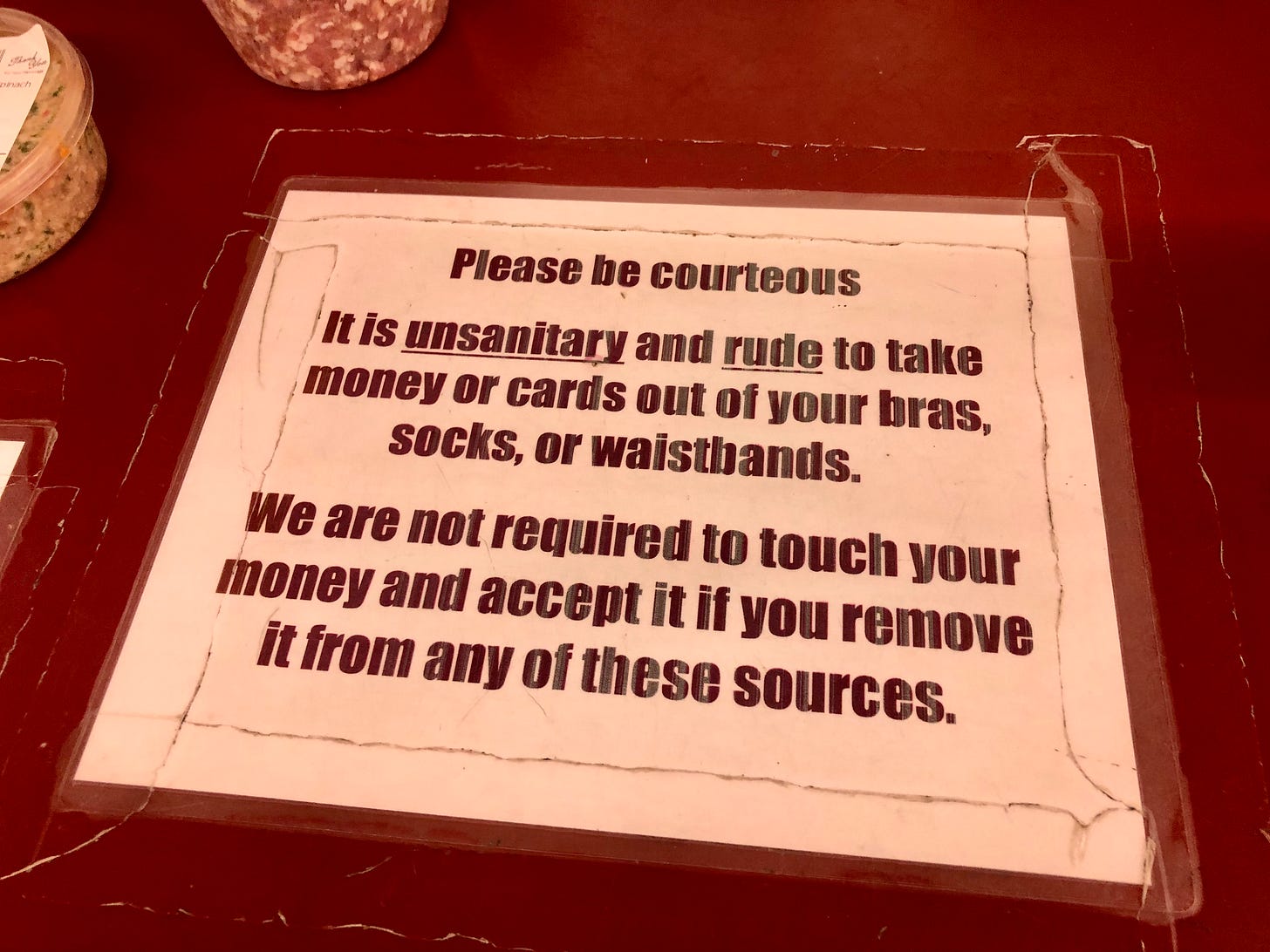
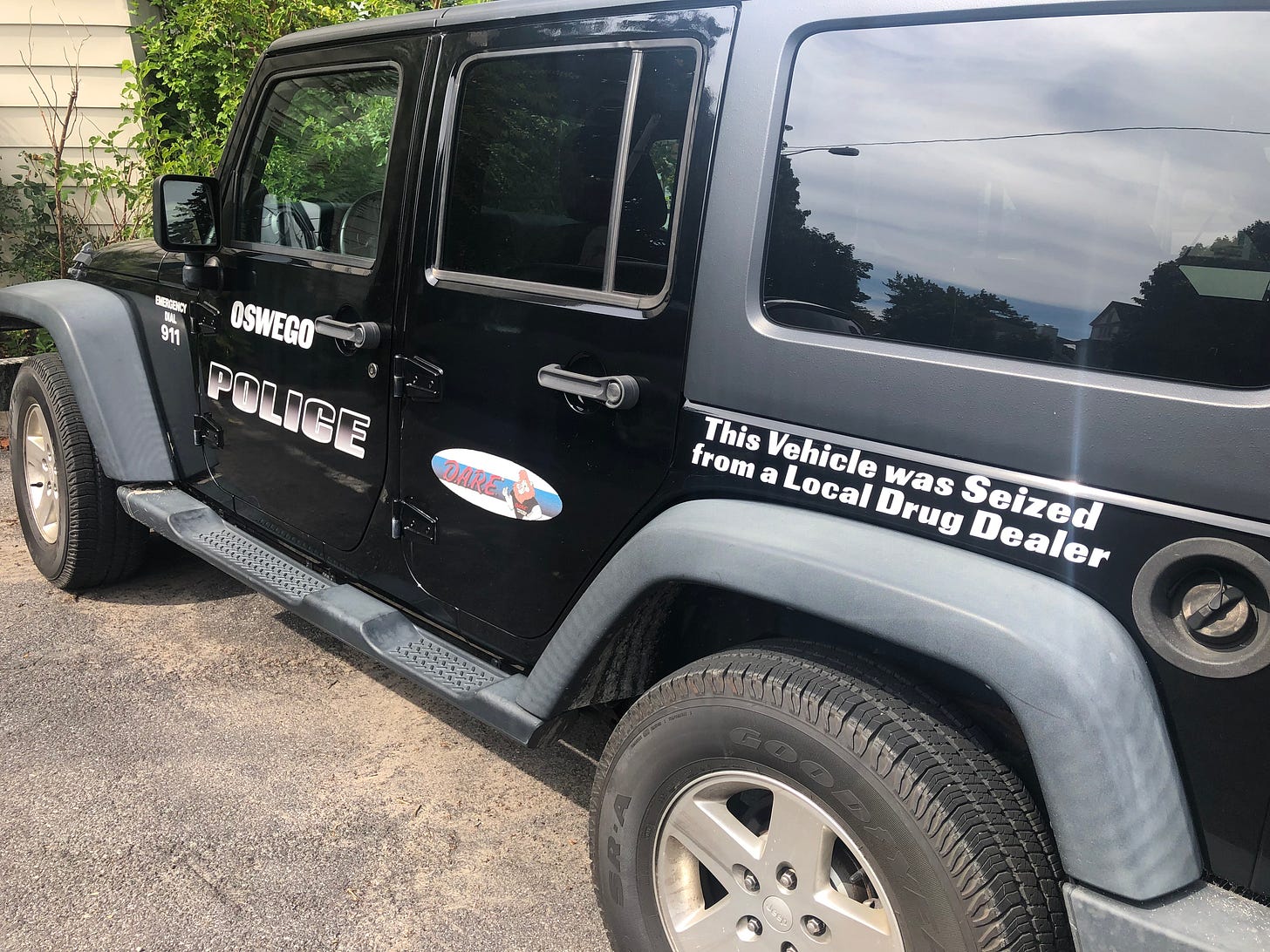


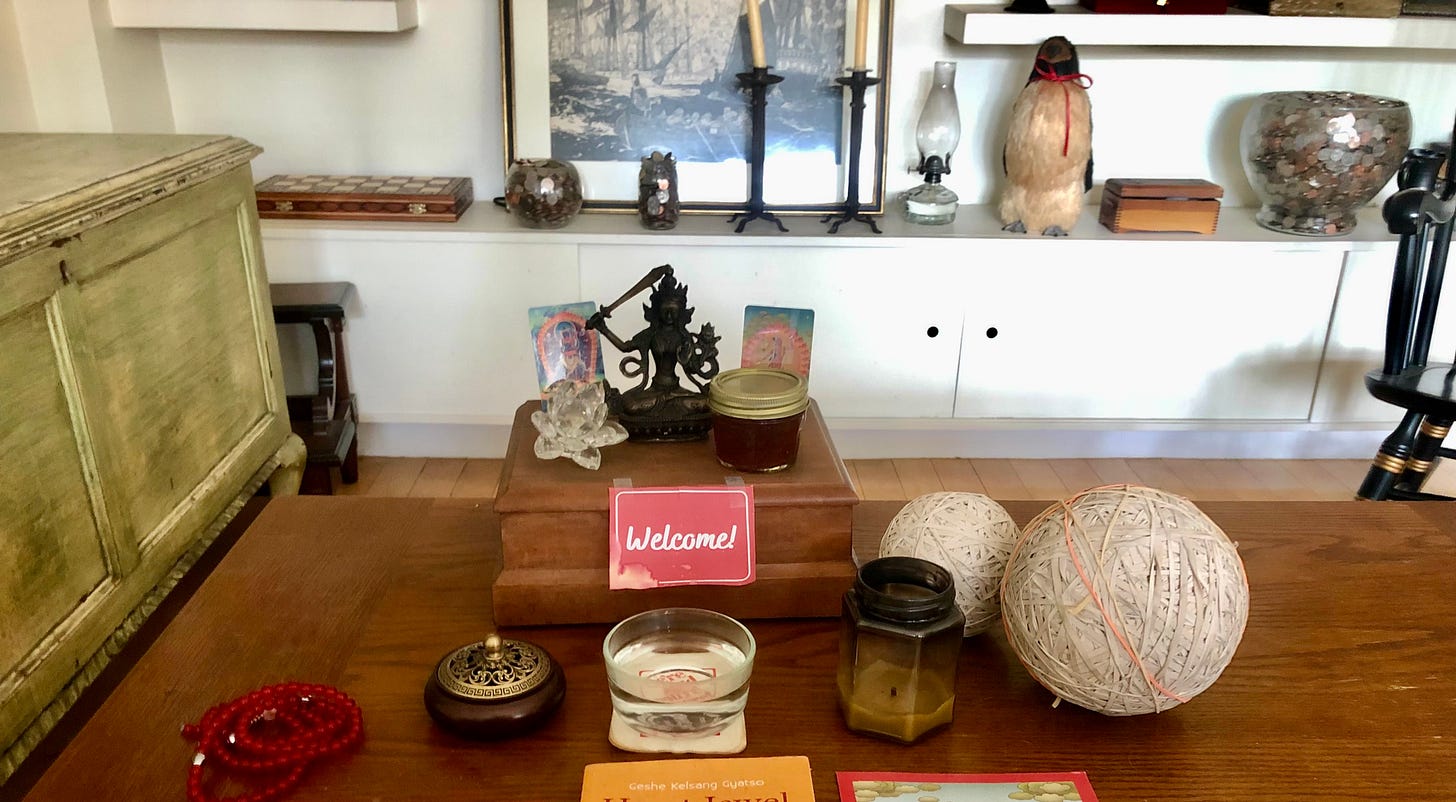
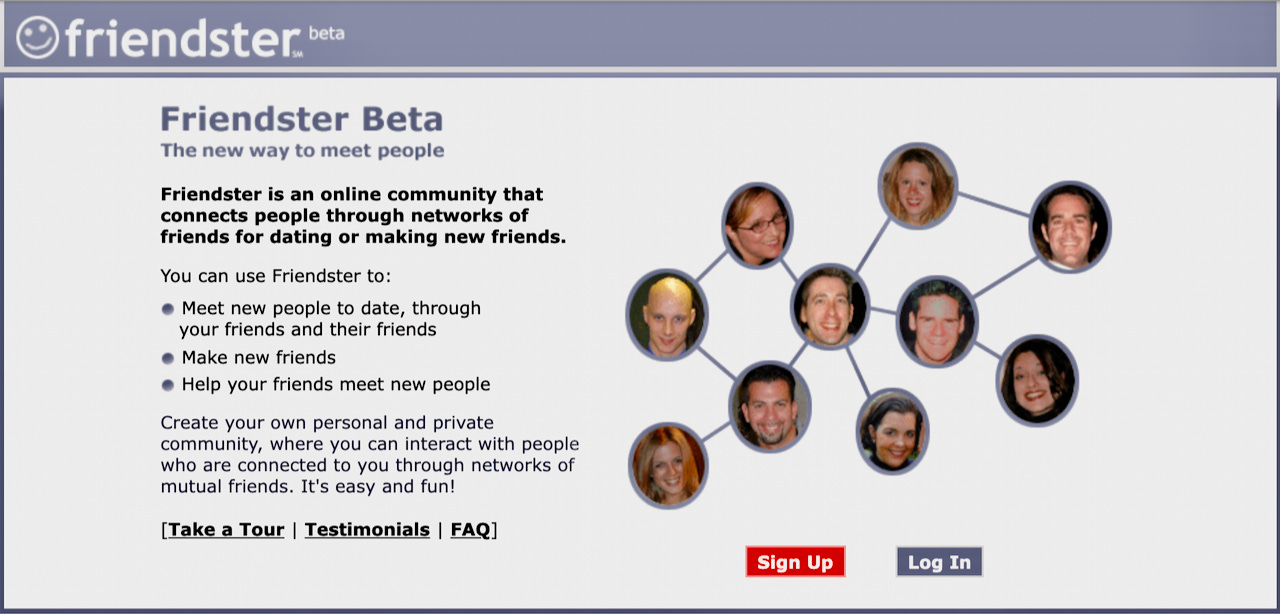
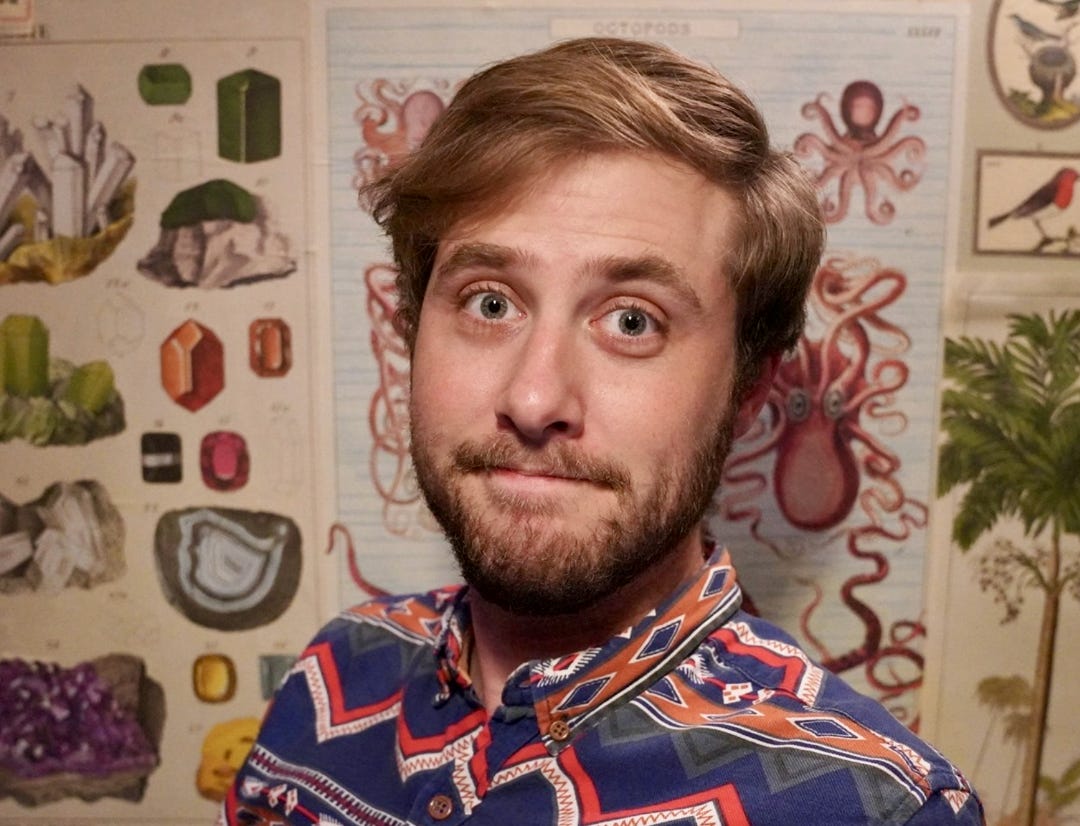


I love that you grabbed danah boyd's Friendster profile. But of course, because that's going to be the easiest one to find since she was the first person to take social networks seriously. It's been many years since I've invented research questions in order to email her, but based on her willingness to humor me, I'd guess she'd be happy to chat with you about ye olde golden days of social media.
Those rubber-band balls belong in MOMA:)